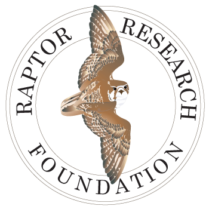Stephen Tully Research Grant
STEPHEN R. TULLY RESEARCH GRANT
THE AWARD: The Stephen R. Tully Memorial Grant is given to support research, and conservation of raptors especially to students and amateurs with limited access to alternative funding. The award is given in memory of Steve Tully, a young raptor biologist, who lost his life in an automobile accident in 1978. Agency proposals are not accepted.
ABOUT STEPHEN TULLY: The Stephen R. Tully Memorial Grant was established in 1983. The grant honors the memory of Steve Tully, who died as a result of a car accident in 1978, at age 21. Steve was a falconer with an enthusiastic interest in raptor biology. It was a measure of Steve’s dedication to raptors that he was searching for his trained Red-tailed Hawk immediately after the accident when he tragically died of internal hemorrhaging before he received treatment for his injuries. Steve’s family and friends established the grant in homage to him and to perpetuate the conservation and study of the raptors he loved in life. A Colorado resident, Steve was married to Babette (née Cranson), another early RRF member.
TO APPLY: Applicants should submit
• A cover letter highlighting the motivations, objectives, and expected outcomes of the study
• The applicant’s CV
• A proposal of no more than five pages, including:
o Background and justification (need)
o Study objectives and methods
o A budget detailing how funds will be spent
o A list of other funding sources, both requested and received
o Expected results
o Literature cited (maximum one page)
• A photograph of the applicant, preferably in the field, to be used when awards are announced.
AMOUNT: up to $2,000 plus waived page charges to publish the research in the Journal of Raptor Research. The recipient must be the primary author and the paper must reflect what the award was for.
Number of Grants Issued per Year: 1
Application Method: Apply online through June 30th. Please contact awards@raptorresearchfoundation.org with questions about your application. The online application opens in January each year.
Past Recipients
| Year | Tully Recipient | Title |
|---|---|---|
| 1986 | Vicky J. Meretsky | |
| 1987 | Kelly Hogan | |
| 1988 | Gian Basili | |
| 1989 | Dale K. Ward | |
| 1990 | Cynthia Sills | |
| 1991 | Neal D. Niemuth | |
| 1991 | Kevin J. Merkel | |
| 1992 | Martha J. Desmond | |
| 1993 | Elsie V. Schmidt | Morphological & genetic variation in migrating raptors |
| 1994 | Robert Warnock | Effects of habitat fragmentation on Burrowing Owls |
| 1995 | Wendy A. Kuntz | Regional variation in the vocalization patterns of Mexican Spotted Owls |
| 1996 | Unknown | |
| 1997 | Jennifer Jacoby | The genetics of a reintroduced population of an endangered bird, Falco peregrinus |
| 1997 | Stacy Lindemann | Factors affecting biparental care in the American Kestrel |
| 1998 | Nicole Korfanta | Population genetics in resident and migratory Burrowing Owls |
| 1999 | Roberval Alameida and Eduardo Baldioceda | Strategies for conserving rainforest raptors in the buffer zones of Costa Rica national parks |
| 2000 | Unknown | |
| 2001 | Unknown | |
| 2002 | Unknown | |
| 2003 | Shelley Bayard de Volo | Genetic fingerprinting for identifying individual Northern Goshawks in studies of survival |
| 2003 | Gabriel Jaime Colorado | Monitoring the migration of North American raptors in Northern Columbia |
| 2004 | No applications received | |
| 2005 | Ursula Valdez | Ecology and Habitat Use of Forest-falcons in the Amazonian Forest of Southeast Peru |
| 2006 | Michael A. Palladini | Cooper’s Hawk foraging ecology in an interior ponderosa pine forest: response to experimental restoration treatments at an Adaptive management Area |
| 2007 | Corinne Kozlowski | Androgen allocation in the Eastern Screech Owl |
| 2008 | Mark Jasper | Determining the effects of parasitic disease on the onset of migration of Red-tailed Hawks (Buteo jamaicensis) using stable isotope analysis |
| 2009 | Jessi Brown | Ecology of the Southeastern American Kestrel |
| 2010 | Scolasticah Ndegwa | Distribution and population size of Martial Eagles in Kakemega Forest, Kenya |
| 2011 | Laxman Prasad Poudyal | Vulture Conservation Awareness Program in Chitwan National Park, Nepal |
| 2012 | Tate Mason | The impacts of anthropogenic noise on Northern Saw-whet Owl hunting ability |
| 2013 | Yarelys Ferrer Sánchez | Population size and effects of habitat fragmentation on reproductive ecology of the Cuban black hawk in the central region of Cuba |
| 2014 | Anna Autilio | Feeding Behavior of Striated Caracaras (Phalcoboenus australis) in the Falkland Islands during Austral Winter |
| 2015 | Danielle Floyd | Northern Saw-whet Owl (Aegolius acadicus) population dynamics in the Southern Appalachian mountain range |
| 2016 | Paula Maiten Orozco Valor | Effects of Agricultural intensification on the demographic and health on a typical raptor of agroecosystems, the American Kestrel (Falco sparverius), in the center of Argentina |
| 2017 | Anoj Subedi | Exploring the Status and Distribution of Owls and its Conservation Initiatives in the Raghuganga Gaupalika of Myagdi District, Nepal |
| 2018 | Jessica Schlarbaum | Prey preferences and provisioning rates of American Kestrels in the Central Valley, California, United States |
| 2019 | Diego Ricardo Mendez Mojica | Surveying critical sites for the conservation of the King Vulture in central Bolivia |
| 2020 | Brittanie L. Loftin | Population Genetics of Mississippi Kites in the Great Plains |
| 2021 | Siddhartha Regmi | Breeding Success and Conservation of White-Rumped Vulture in Syangja District, Nepal |
| 2023 | Gabriela Crisanto Téllez | Persistent organic pollutants in American Kestrels in Mexico. |
